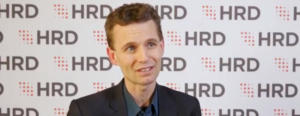How to avoid people-problem landmines
- 5 Min Read
No matter what the situation is or who is involved, conflict of any kind can easily become damaging. The Buzzacott HR Consultancy team look at how to best avoid people-problem landmines in the workplace. Conflict at work can not only derail your career and inhibit your performance, but it can be incredibly costly for your […]
- Author: HRD Connect
- Date published: Aug 3, 2017
- Categories
No matter what the situation is or who is involved, conflict of any kind can easily become damaging. The Buzzacott HR Consultancy team look at how to best avoid people-problem landmines in the workplace.
Conflict at work can not only derail your career and inhibit your performance, but it can be incredibly costly for your business in terms of time and resources dedicated to tackling it, managing the staff involved, litigation costs and payouts and the damage inflicted upon you and your business’s reputation.
To debunk a myth, you don’t need to have line management responsibility for staff to be vulnerable to a conflict at work; it can arise when you least expect it with colleagues, friends at work, clients and suppliers or in fact anyone you come into contact with. Where there are two or more people occupying a space (physical or virtual) there is the scope for it to occur with little warning and sometimes in a spectacular fashion. If it is not tackled swiftly it will quickly become toxic and you can then expect to spend an inordinate amount of time writing and revising your witness statement, trawling for any unguarded or damning emails/texts you may have sent in cordial times, speaking to HR and in-house lawyers and preparing to attend a disciplinary hearing, or if you are really unlucky, an employment tribunal.
Even the most robust and thick skinned of leaders learn that stepping on an unexpected people-problem landmine triggers professional and personal consequences that are more harmful than the initial detonation and can slowly erode their conscience, inflate and reinforce their negative perceptions of how they think others perceive them now, impact on their self-esteem, concentration and performance. Given that leaders at all levels are under ever increasing pressure to deliver more with fewer resources in an ever uncertain economic environment and with limited time to attend to professional development, what are their options?
Read more by Kimberly Bradshaw
Access to workplace mediators – Ensuring that your organisation either has internally trained or external access to experienced workplace mediators is a good start.
Pros: Mediation provides a fast, discreet and very effective method of restoring working relationships, keeps disputes in-house and reduces the risk of costly and protracted grievance, misconduct and employment tribunal proceedings.
Cons: But it won’t in itself prevent the conflict from arising in the first place.
Personal professional development (CPD) – This usually involves an intensive 1-day course grounded in understanding conflict, how it occurs, what drives it and helps to raise your self-awareness whilst providing some much needed first-aid tools for navigating difficult conversations when they occur.
Pros: If your time is limited and you are rationing yourself to just one professional development course this year that will make an impact on how you think, speak and interact with those around you at work and at home, then this will fit the bill. It’s an excellent investment and introduction to avoiding/handling people land mines.
Cons: There are opportunities to role-play/consider individual situations, but there is a lot of information to impart during the day and for you to become truly proficient in the use of the tools and skills you will learn you will need much more practice.
1-2-1 conflict in the workplace coaching – Working with an executive coach who has specialist knowledge and experience of conflict in the workplace will enable your learning to be tailored to your individual situation at work and will help you understand and develop a personal approach to handling conflict.
Pros: If time is the essence, or you are more comfortable in a discreet 1-2-1 learning environment, prefer a personal approach and want to embed conflict handling skills into your day-to day thinking, executive coaching is an excellent solution. Typically requiring 3-4 sessions each of about an hour’s duration, they can be held at your office or at another location at a time to suit you.
Cons: You might miss out on learning from the experiences of fellow participants in the day course, but the 1-2-1 relationship and bespoke nature of the sessions should more than make up for that.
Managing Director at Buzzcott, Kimberly Bradshaw has over 20 years’ experience supporting the development of organisations, teams and individuals in the UK and overseas through a variety of coaching interventions ranging from executive coaching, coaching support to executives and their families who are relocating internationally to career coaching.
In addition to being qualified as an executive coach Kimberly also has qualifications in cognitive behavioural coaching and NLP. With an MSc in organisational behaviour, Kimberly understands the impact businesses have on people and vice versa, this coupled with her own leadership experience and development work with senior teams and boards brings a unique perspective to her coaching. With this knowledge she works with individuals to focus on how they can deliver against organisational strategy whilst creating their own solutions for achievement and development. You can contact Kimberly on [email protected]









